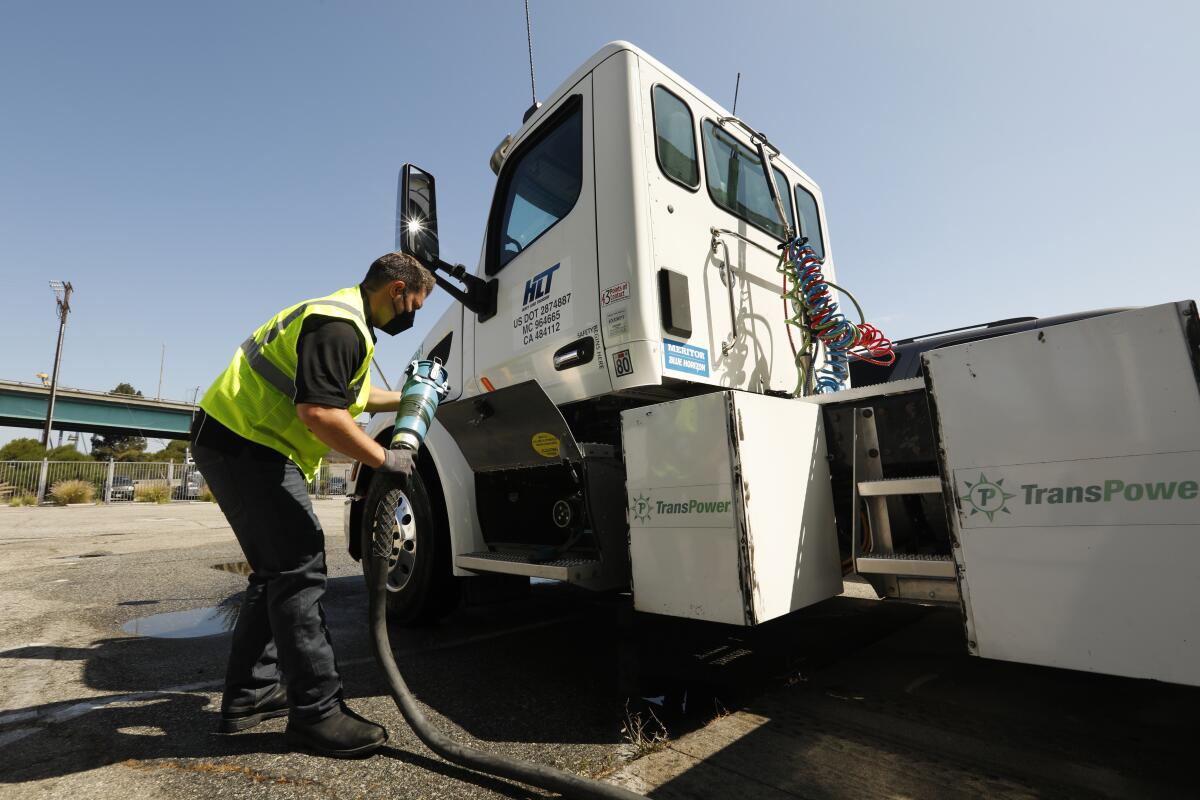Letters to the Editor: Don’t buy the trucking industry’s $1-trillion price tag for going electric

- Share via
To the editor: What will shift to zero-emission trucks cost? The answer is not $1 trillion. (“What will shift to zero-emission trucks cost? $1 trillion for charging alone, study says,” March 19)
Your article paints a picture of exorbitant costs to build out charging infrastructure, citing an trucking industry-funded study that only considers a maximum cost scenario and predictably provokes alarm.
Michael S. Regan, administrator of the U.S. Environmental Protection Agency, will soon finalize new greenhouse gas emission standards for trucks. Unserious cost estimates for implementation hinder proper planning and lead to bad policy.
I have spent my career analyzing vehicle regulations around the world, but don’t take my word for it. For a serious estimate, look to Daimler Truck North America, the largest manufacturer of trucks in the United States.
It has found that the current EPA proposal would support the deployment of 1.4 million zero-emission trucks by 2032 with only $66 billion in charging infrastructure investments — less than 7% of what your article suggests.
Ray Minjares, San Francisco
The writer is heavy-duty vehicles program director at the International Council on Clean Transportation.
..
To the editor: What a surprise! It’s going to cost a lot for new stuff.
Of course, there is no mention of how many hundreds of billions it will cost to maintain fossil-fueled trucks over the same period, just the shock value of a big price tag dangling out there without context.
My suggestion is that this should be an incremental changeover, starting with all-electric trucks doing short hauls from the ports to the distribution centers in California. It shouldn’t be too hard to put in charging for them at the depots at those locations, and the range needed is a fraction of that for long hauls, so charge times will be much easier to manage.
Once that gets going, it will be much easier to build out through the country.
Michael Lampel, Granada Hills
..
To the editor: Diesel exhaust causes cancer. The state of California made that determination in 1997.
I lived in the “diesel death zone” of San Pedro for 40 years. I have cancer. My partner is a cancer survivor. My late wife died of cancer. My older son is a cancer survivor.
Do I care if it costs $1 trillion to get rid of diesel trucks? Not really. If replacing diesel trucks with electric ones drives up the cost of imported consumer goods, so be it.
Dumping the misery and costs of cancer, not to mention the many other health impacts of diesel exhaust, on the defenseless public is immoral. If the prices of those goods reflected all of the costs involved, we might make better decisions — such as making stuff at home instead of shipping it halfway around the world via diesel-powered transportation.
Noel Park, Rancho Palos Verdes




